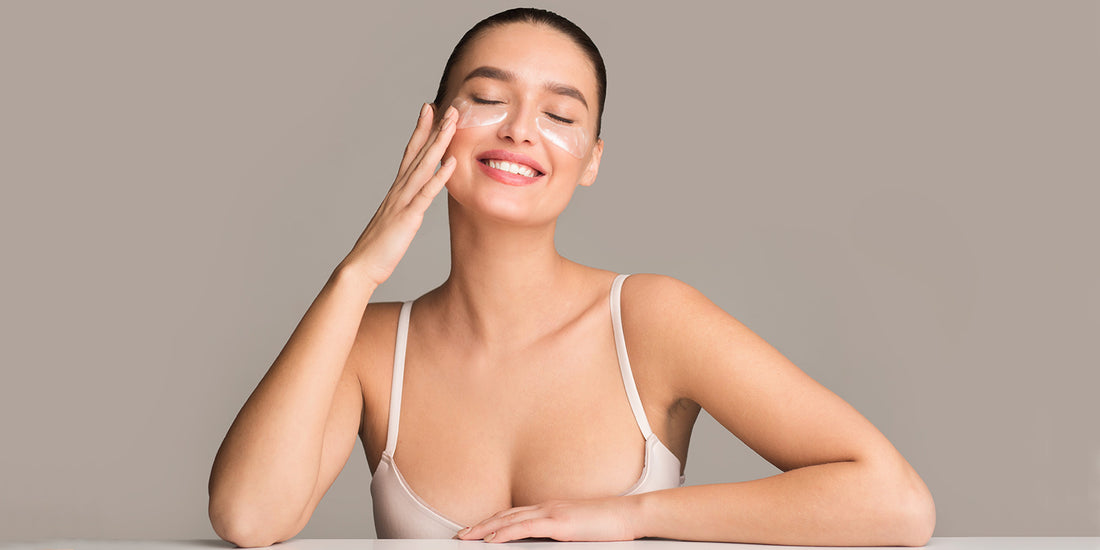
7 Bad Habits that you Need to Stop Right Now
Share
When it comes to caring for our skin, there are some things that we should not do, and some things that we should do better. So....here we go!
Use of unsuitable Sunscreens
Sunscreen and sun cream products are not all created equal. A good sun cream should effectively block both UVA (responsible for aging) and UVB rays (responsible for sun burns). If your sunscreen does not cover both types of rays, then better put it aside. Furthermore, when it comes to sun creams, more is better. Do not hesitate to use an adequate amount. For good coverage of the face, neck, and décolleté you will need about a teaspoon of the product.
Postponing Anti-aging Prevention
We are all well aware that prevention is always better than the cure. It is therefore essential to begin preventative anti-aging treatments early. As a rule of thumb, eye creams should be used from the age of 18 and up, Serums from the age of 25 and up, and creams containing stronger anti-aging ingredients from the age of 35 and above. Of course these are just guidelines. The main point is that if prevention starts early, then you can effectively delay the signs of aging before they even start to form, giving you smoother, more youthful skin for a
Using Effective Ingredients at the wrong time
Using products which contain effective ingredients is great for our skin, but only when used at the right time. For example, products with antioxidants such as vitamin C, or moisturizers with hyaluronic acid, should be used during the day in order to control damage from UV rays and free radicals, as well as maintain the hydration balance of the skin. On the other hand, creams with powerful anti-aging ingredients such as collagen, peptides, etc., should be used at night when the skin is in a better position to “use” the ingredients to "repair" the skin.
Your skin does not remain the same
The fact is that as we age, our skin is changes. Our skin tends to become less hydrated more dry, thinner, and sometimes, even more sensitive. As such, it is not possible or logical to keep using the same products we have been using since we were 20 years off. You need to recognize the changing needs of your skin and modify your skin care regiment accordingly.
Neglected Eyes
First we need to understand that not only the skin around the eyes is thinner than almost anywhere else on our body, but also it is very susceptible to fine lines and wrinkles. The one thing you need to stop doing right away is rubbing your eyes. Due to the fact that the skin around the eye area is so thin and delicate, each time you rub your eyes, you run the risk of breaking the minute blood vessels which result in "cracks" in the skin, dark circles and dull looking skin. Of course, using an anti-wrinkle, anti-aging cream appropriate for the eye area is a necessity morning and evening.
Neglecting the neck and Décolleté
If you are in the habit of not providing daily skin care to the neck and décolleté area, then you should really reconsider your skin care regime. You need to always bear in mind that your face does not end at your jaw line, but at your chest. Think about it! This part of your body - neck and décolleté – is always in plain sight, therefore deserves the same attention and care you provide to your face. When cleansing your face, when applying serums, peelings, moisturizers, anti aging products, sun cream, or any other products, extend their application to the neck and décolleté.
Smoking
Even though you should not need another reason or excuse to quit this nasty habit , let me give you another one regarding your skin. Smoking aids in the development of deep wrinkles and lines on the skin! In addition, according to research published in the Plastic and Reconstructive Surgery Journal, each decade of smoking has the unpleasant effect in making the skin appear 2.5 to 3 years older than it really is.
So there you have it ladies. Let's try and follow the above guidelines to keep our skin healthy, radiant, and beautiful for a long time. Please do send me your questions or comments.

